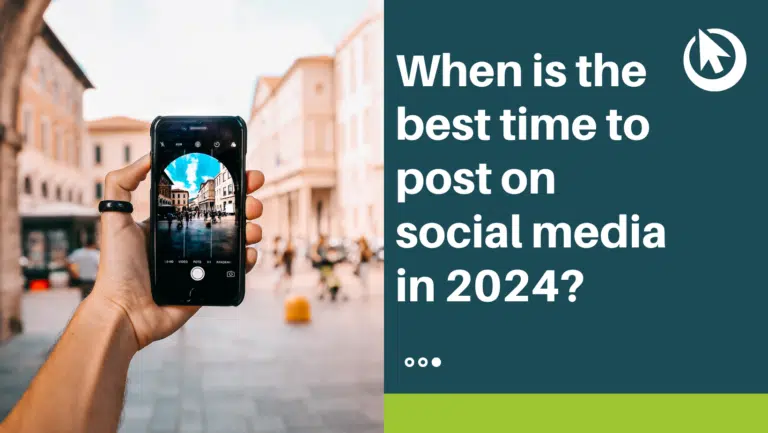In recent years, a shift has occurred in the world of e-commerce, and it’s called social commerce. This creative approach to online shopping leverages the increasing power of social media platforms to create seamless engaging, and in some cases, a one-click shopping experience for consumers.
Although this shift has been driven mostly by the buying power of Gen Z, who are the largest audience active on social media today, it was inevitable that e-commerce and social media would meet, as technology moves on and brands and businesses try and find new ways of turning their social media audience into direct customers.
The marketing industry has always relied upon the available technology to innovate new strategies and channels and so the blending of social media and e-commerce combined with the death of high-street retail, has meant we are now seeing a huge rise in the use of social commerce. But what impact is it actually having on e-commerce brands and businesses?
Understanding Social Commerce
To understand how social commerce is having such an impact on businesses, you need to understand what it is. Social commerce is simply e-commerce integration with social media. It involves the integration of shopping features directly into social media platforms, enabling users to browse and purchase products without leaving the app.
Platforms like Instagram, Facebook, Pinterest, and TikTok have been at the forefront of this revolution, providing businesses with a dynamic channel to reach their target audience and enable a shopping experience like no other.
Brands can now showcase their products, provide detailed information, and provide transactions, all within the familiar environment of social media. This not only extends the reach of e-commerce brands but also capitalises on the trust and sense of community that users associate with their preferred social platforms, bridging the gap between social engagement and transactional conversion.
As you can imagine, the rise of social commerce is synonymous with social commerce marketing; through targeted advertising strategies, shoppable posts, and influencer collaborations, businesses can strategically position their products in front of a highly engaged audience and improve their Conversion Rate Optimisation (CRO).
In essence, social commerce marketing represents a combination of social media engagement and e-commerce functionality, reshaping the way businesses connect with their customers and drive conversions.
The Emergence of Shoppable Post
One of the pivotal features of social commerce is the introduction of shoppable posts. These are posts that include product tags or links, allowing users to click on them and make a purchase with just a few taps. This seamless transition from browsing to buying has changed the way consumers shop online, making it more convenient and intuitive than ever before.
Expanding Audience Reach
Social media platforms boast vast user bases, with billions of active users worldwide. This presents an enormous opportunity for e-commerce brands to expand their reach and connect with potential customers. By taking advantage of social commerce, businesses can tap into these engaged audiences and showcase their products to a global market.
Building Trust and Authenticity
Social commerce provides a unique opportunity for brands to build trust and authenticity with their audience. User-generated content, reviews, and testimonials play a significant role in this process.
When consumers see real people using and endorsing products, it instils confidence and credibility in the brand. This level of trust is proving invaluable in driving conversions and fostering long-term customer relationships.
Personalised Buying
Social commerce, driven by personalisation, offers consumers a powerful and tailored shopping journey. Through this approach, consumers find themselves in the driver’s seat, gaining greater control over their purchasing decisions.
The beauty of personalisation lies in its ability to curate product recommendations and content based on individual interests, preferences, and browsing history. This translates to a shopping experience that feels uniquely catered to each consumer, ensuring they discover new products that align perfectly with their tastes.
This heightened level of customisation not only enhances the overall shopping experience but also helps create a deeper connection between consumers and brands, ultimately leading to increased satisfaction and loyalty.
Enhanced Customer Engagement
Engagement is the lifeblood of any successful e-commerce venture. Social commerce platforms allow for real-time interaction between brands and customers. Features like comments, direct messages, and live streams create opportunities for meaningful conversations.
This direct line of communication allows businesses to address inquiries, provide personalised recommendations, and gather valuable feedback, ultimately enhancing the customer experience and providing valuable data for future marketing strategies.
The Data Advantage
Data is the driving force behind effective marketing strategies. Social commerce platforms provide businesses with a treasure trove of insights into consumer behaviour, preferences, and purchasing habits. This wealth of data empowers brands, no matter how small, to refine their targeting, optimise product offerings, and tailor marketing efforts for maximum impact.
Adapting to Changing Consumer Behaviour
As consumers increasingly turn to social media for product discovery and recommendations, businesses must adapt to this shift in behaviour.
A huge benefit of social commerce is that it meets customers where they already spend a significant portion of their online time, creating a seamless shopping experience that aligns with their preferences.
The Future of E-Commerce: Social Commerce 2.0
As we look ahead, it’s evident that social commerce will continue to evolve and redefine the e-commerce landscape. Innovations in augmented reality (AR) shopping experiences, virtualtry-ons, and AI-driven personalised recommendations are on the horizon. Brands that embrace and master these technologies will be at the forefront of the next wave of social commerce.
However, this does not mean that social commerce will not be without its challenges.
While social commerce presents an array of opportunities, it also introduces a set of challenges for marketers and brands to navigate. Firstly, the fast-paced nature of social media demands constant adaptation to evolving algorithms and user behaviours. Staying relevant amidst this dynamic landscape requires vigilance and flexibility.
Additionally, maintaining a consistent brand image across various social platforms can be a complex task, particularly for businesses with diverse product lines. Moreover, striking the right balance between promotional content and genuine engagement is crucial to avoid alienating audiences.
The integration of robust analytics and tracking mechanisms is imperative to measure ROI and understand the effectiveness of social commerce efforts. Finally, building trust in an environment often associated with influencer marketing and user-generated content can be a delicate process, necessitating transparent and authentic brand communication.
Overcoming these challenges requires a strategic approach, a deep understanding of target audiences, and a willingness to adapt to the evolving social commerce landscape.
Conclusion
In conclusion, the rise of social commerce represents a transformative moment in the world of e-commerce. By integrating shopping experiences directly into social media platforms, businesses have unlocked new levels of convenience, engagement, and trust with their audience.
As this trend continues to shape the industry, agile e-commerce brands can seize the opportunity to redefine the way consumers shop online. Embracing social commerce isn’t just a strategy; it’s a necessity for those looking to thrive in the dynamic world of digital retail.
We know that staying on top of all the current trends can be difficult, especially for businesses without an in-house marketing resource. This is why using a digital marketing agency like ours here at Click Through Digital can make a huge difference to your marketing and advertising campaigns.
Not only do we provide strategies, create content and campaigns, and offer management of your social media but we also provide valuable insights and industry expertise, enabling you to stay on top of all new technologies and marketing trends, keeping you agile in the ever-evolving retail market.
Come talk to us! [email protected]


